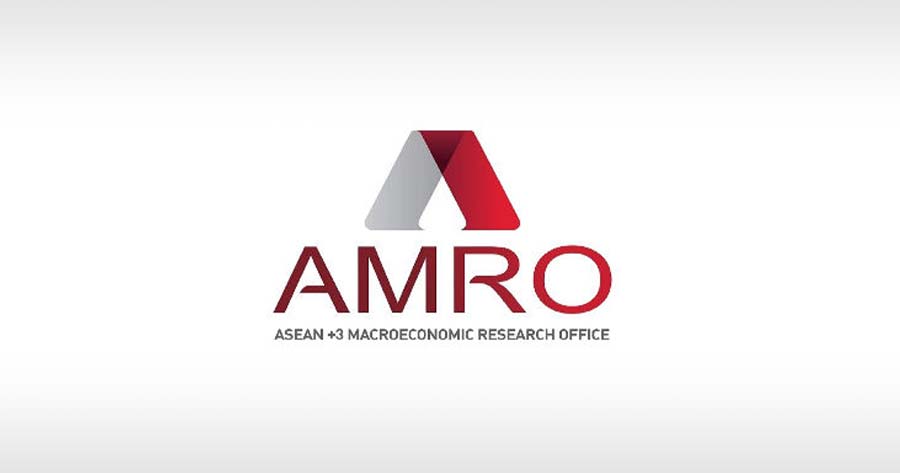- Thailand’s economy is strengthening on the back of resilient private demand, continued recovery in tourism, and accelerated government disbursement.
- Growth is expected to strengthen to 2.8 percent in 2024 and to 3.3 percent in 2025.
- However, the economy is at risk of continued growth underperformance unless there is a marked improvement in the implementation and execution of structural reforms and development plans.
- Over the longer term, Thailand faces challenges in reversing the persistent decline in growth potential. This necessitates growth-enhancing structural transformation and reforms across all sectors of the economy, while carefully managing fiscal and monetary policies within tightening constraints.
Thailand’s economy is strengthening on the back of resilient private demand, continued recovery in tourism, and accelerated government disbursement. Growth is expected to strengthen to 2.8 percent in 2024 and to 3.3 percent in 2025. However, the economy is at risk of continued growth underperformance unless there is a marked improvement in the implementation and execution of structural reforms and development plans.
Over the longer term, Thailand faces challenges in reversing the persistent decline in growth potential. This necessitates growth-enhancing structural transformation and reforms across all sectors of the economy, while carefully managing fiscal and monetary policies within tightening constraints.
These conclusions are highlighted in the 2024 Annual Consultation Report on Thailand published by the ASEAN+3 Macroeconomic Research Office (AMRO) today. The report was based on AMRO’s Annual Consultation Visit to Thailand from July 30 to August 9, 2024, and data and information available up to September 30, 2024.
Economic developments and outlook
Thailand’s economic growth fell below expectation in 2023, with GDP growing by 1.9 percent due to weak exports and delayed budget approval. Growth is expected to strengthen to 2.8 percent in 2024 and to 3.3 percent in 2025 thanks to accelerated government disbursement, including the digital wallet scheme rollout, strengthening exports, and continued tourism recovery.
Growth rose to 2.3 percent year-on-year in the second quarter of 2024, driven by improved public spending and exports. Growth in the second half of 2024 and 2025 is projected to strengthen, with tourism expected to exceed pre-pandemic levels in 2025. Government spending is set to accelerate, with the revised digital wallet scheme set to boost short-term growth.
Headline inflation is projected to remain low and decline to 0.7 percent in 2024 from 1.3 percent in 2023 due to energy subsidies and lower prices of food and other essentials. Inflation is expected to rise to 1.5 percent in 2025 as subsidies are gradually phased out and economic recovery strengthens.
Risks and vulnerabilities
Short-term risks include potential export weakness, delays in government disbursement, and weaker private investment. High household debt and slow income recovery for vulnerable segments could pose challenges for consumption and banks’ asset quality.
Over the longer term, Thailand faces public debt sustainability risk and a persistent decline in growth potential. The failure to adapt to digital and decarbonization trends could render key export sectors uncompetitive, potentially affecting a significant portion of exports in the coming years.
Policy recommendations
Policy priorities should include securing macro-financial stability while rebuilding policy space in the medium term and revitalizing structural transformation for higher growth potential in the long term.
The current monetary policy stance remains consistent with the baseline outlook of strengthening growth and inflation, and a gradual deleveraging of household debt. There is room for additional monetary policy easing should economic growth continue to underperform baseline expectation. AMRO commends the authorities’ efforts to lower household debt and enhance credit guarantee mechanisms.
On fiscal policy, AMRO welcomes the scale-down of the digital wallet scheme and the redesign of the initial batches to better target vulnerable groups. The authorities are encouraged to restore fiscal space through consolidation and stricter governance. AMRO commends the timely Medium-Term Fiscal Framework (MTFF) revisions with clear consolidation targets. Given increasing long-term expenditure demands, comprehensive revenue reforms are imperative.
To realize higher longer-term growth potential, revitalizing economic transformation will be key. This involves boosting agricultural productivity, accelerating labor movement from agriculture to more productive sectors, shifting manufacturing toward new growth engines, upgrading traditional industries, and unleashing the services sector’s potential through infrastructure improvements and nurturing high-end services.
Based on the report’s scenario assessment, Thailand will reach high-income status in 2050 under the current trajectory. With bold reforms and effective implementation of development plans to uplift potential growth, Thailand can achieve high income status by early 2040s.
To drive economic transformation, Thailand needs more focused reforms and stronger implementation in fostering innovation, developing human capital, and upgrading infrastructure. Strengthening the implementation of development plans through stakeholder coordination and realizing investment projects would be critical to translating reform efforts into growth benefits.
The AMRO team would like to express its gratitude to the Thai authorities and other participating organizations for their support and candid exchange of views during the mission.





